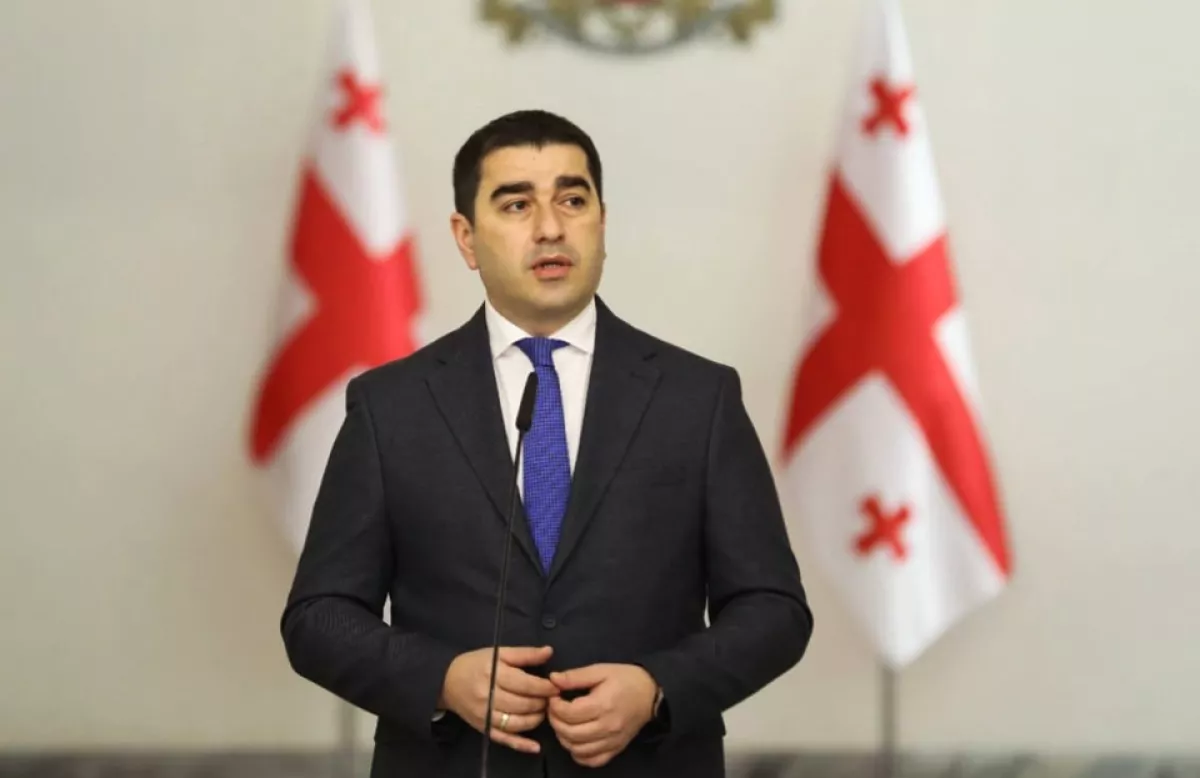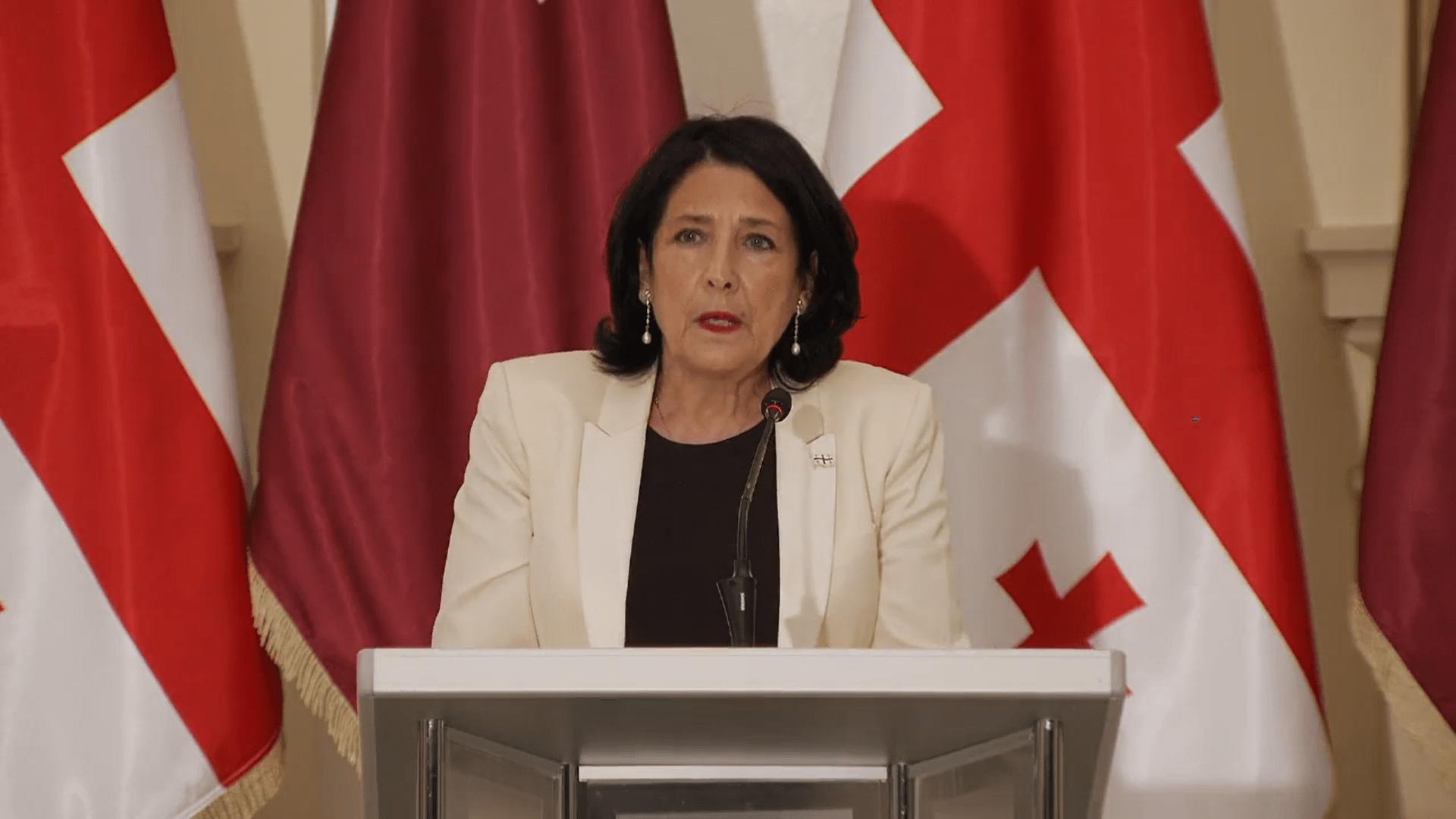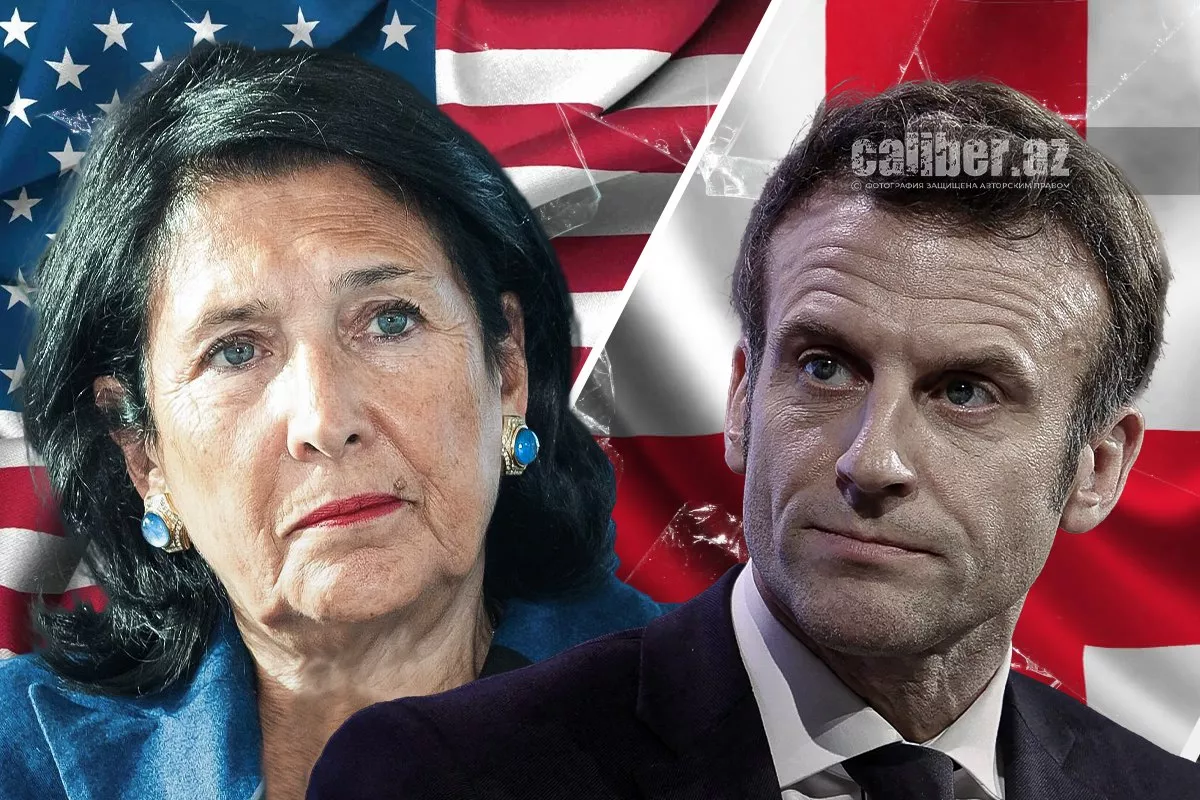Georgia’s opposition: From protests to irrelevance Salome Zourabichvili and the West’s impact
Opposition protests in Georgia are becoming increasingly small and marginal. The main reason for the marginalization of opposition protests is clear: they lack internal support within the country and rely entirely on external funding. Furthermore, the opposition, effectively led by former President Salome Zourabichvili, serves the interests of the EU and the US, even when it goes against Georgia's own interests, which is becoming more and more obvious to Georgian society.
The Speaker of the Georgian Parliament, Shalva Papuashvili, eloquently explained who the opposition serves when commenting on a conversation between opposition politician Elene Khoshtaria and a police officer, the video of which was shared on social media. The opposition figure addressed the police officer saying: "The law dictates that you must serve Europe, as stated in Article 78 of the Constitution," to which the police officer responded: "I must serve my country." According to Papuashvili, "This brief dialogue probably best illustrates where servitude lies and where serving one’s country does," adding that "we and these marginal individuals cannot reach an understanding because they serve Europe, not their own country."

The opposition still fails to organize a Maidan or revolution, as the authorities are responding appropriately to violations of Georgian law by the opposition, especially illegal actions against police officers. The Secretary-General of the ruling party, Georgian Dream – Democratic Georgia, and the Mayor of Tbilisi, Kakhа Kaladze, stated that any citizen can peacefully express their opinion, but no one will be allowed to stage a revolution in the country. He urged the opposition to accept defeat. "There is statehood, and the revolution will not happen. There are elections, and power changes through them. You lost in the elections. You were defeated by the Georgian people. 1,200,000 people supported peace and said 'no to fascism,'" added the Mayor of Tbilisi, reminding the opposition that its members are also citizens of Georgia and must obey the country's laws; otherwise, the relevant authorities will always respond to their actions.
Clearly, even after failing to organize a Maidan in Georgia, the West is unlikely to leave the country, which holds such an important strategic position, alone. After all, Georgia's example of defending state sovereignty could become contagious. Especially since Georgia's economic dependence on the US and the EU is minimal and may further decrease in the future. The Middle Corridor, which China is developing in collaboration with countries from Central Asia and the South Caucasus, enables the sovereign states of the region to effectively integrate into the global economy, avoiding neocolonial subordination to Western countries.
Even after securing a "job" and "safe haven" at the McCain Institute in the US, former President Salome Zourabichvili continues to work on destabilizing the situation in Georgia and still considers herself "the only legitimate authority." "Just one small, but big correction, that I have to bring to your presentation, which is that I’m not the former president. I am the only legitimate president of Georgia even today despite the pretensions of the ruling party to have a new president,," Salome Zourabichvili addressed John Walters, the head of the Hudson Institute, during an online discussion about Georgia when he referred to her as the former president.

At the same time, Salome Zourabichvili's rhetoric quickly shifts from being anti-Russian to anti-Chinese. "China has very many interests linked with the ruling party and the question of the next port in Anaklia, of the next airport in Tbilisi, all are at stake and there are discussions going on with the Chinese…So, non-recognition policy, non-recognition of the non-legitimate government parliament and de facto president is essential to put the pressure. The sanctions are putting on their side a different type of pressure, because it’s pressuring not only the leaders of GD but also the first circle around them, which is what is like in any of those autocratic because they’re already an autocratic regime, a one-party regime…So, all of that should continue, but you should certainly help us to strive and to get to new elections because there is no other known way to get out of such a deep crisis like the one we are in today in Georgia," Salome Zourabichvili stated, particularly highlighting China's interest in building the Anaklia deep-water port and its support for the current Georgian government.
It was from the visit "closer" to the future Anaklia port that Salome Zourabichvili began her regional tour of Georgia, speaking at an opposition rally in the city of Zugdidi. "I am very glad that my regional tour begins in Zugdidi. For me, this is great happiness, and not only happiness, but in my view, this is very right, as Zugdidi is the closest place to Europe in Georgia. You are our Europeans, and our path to Europe begins here, from Anaklia. Europe is on the other side of the Black Sea, and we will undoubtedly join it," Zourabichvili stated.
With her statement in Zugdidi, Salome Zourabichvili immediately cast doubt on Georgia's territorial integrity. It is well known that the closest area to Europe in Georgia is Abkhazia. However, it seems that, to destabilize the situation in the South Caucasus region, both Zourabichvili and those behind her are willing to sacrifice Georgia's unity. It is no coincidence that last year, Salome Zourabichvili openly praised the "Maidan" in Sukhumi, even though the pro-Western forces responsible for it had no intention of renouncing separatism and anti-Georgian sentiment, and still do not. But to prevent the construction of the Anaklia deep-water port with Chinese investment, which would be key for the Middle Corridor, Zourabichvili and the opposition might not hesitate to incite separatism and instability in other regions of Georgia.
Another area of destructive actions by the pro-Western opposition is the economy of Georgia. Today, thanks to the efforts of the Georgian government, Georgia has become a reliable transit hub. Thanks to transit, new investment projects, and tourism, the economic growth rate in Georgia is among the highest in European countries. Maintaining economic stability in Georgia is also crucial for the Middle Corridor that runs through the country and the development of its logistical infrastructure. Therefore, if "disruptions" in transit can be organized and images of internal conflicts in Georgia are continuously broadcast, this could deter cargo carriers, investors, and tourists. In an unstable country, the implementation of large-scale logistical projects could be delayed, and it seems that this is becoming the main goal of the opposition in the near future.
This may be the ultimate goal behind the opposition's strategy of organizing strikes. After the series of New Year and Christmas holidays, which ended only on January 13, the opposition decided to schedule a three-hour "general" strike for January 15. An aggressive information campaign to impose this strike on Georgian society has already begun. Undoubtedly, if there is any strike on January 15 in Georgia, it will primarily involve businesses in the service sector, which, in the early stages, will not cause significant harm to the economy. However, for the opposition, the main goal is to "accustom" workers to such actions and to the impunity they entail. Most likely, the strike on January 15 will not be the last; the opposition may attempt to organize new, more large-scale provocations, with the primary goal of creating disruptions in the smooth operation of Georgia's logistical infrastructure and the construction of strategically important facilities (such as the Anaklia port). In other words, the ultimate goal could be to harm the Middle Corridor. The opposition seeks to damage Georgia's economic sovereignty, even in a situation where it will not be able to organize a coup in the form of "early elections" under external opposition control.

Behind the attempts to destabilize Georgia internally, there is a visible "hand of France," which, through its agents in Georgia, is attempting to harm the Middle Corridor projects. The attempt to paralyze Georgia’s economy with strikes shows that the pro-Western opposition and Salome Zourabichvili have shifted to a new destructive tactic. The situation may also be complicated by the opposition's focus on destabilizing local situations and possible attempts to create "centres of defiance" against central authority in certain regions.
Vladimir Tskhvediani, Georgia, for Caliber.Az








